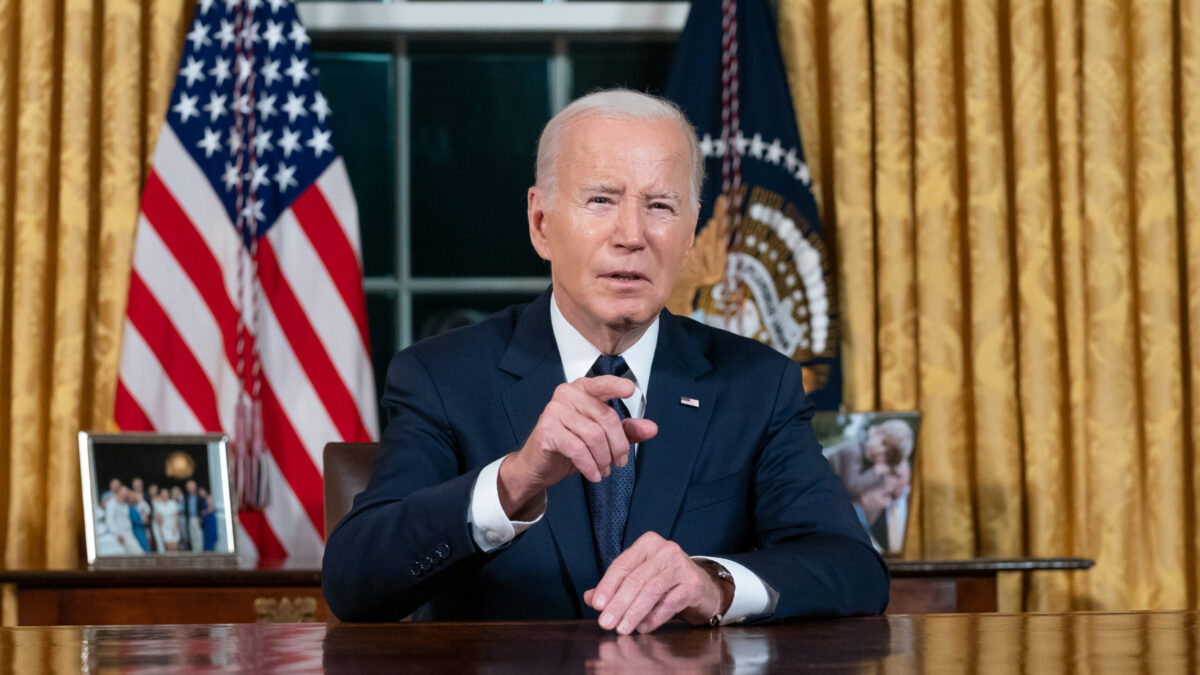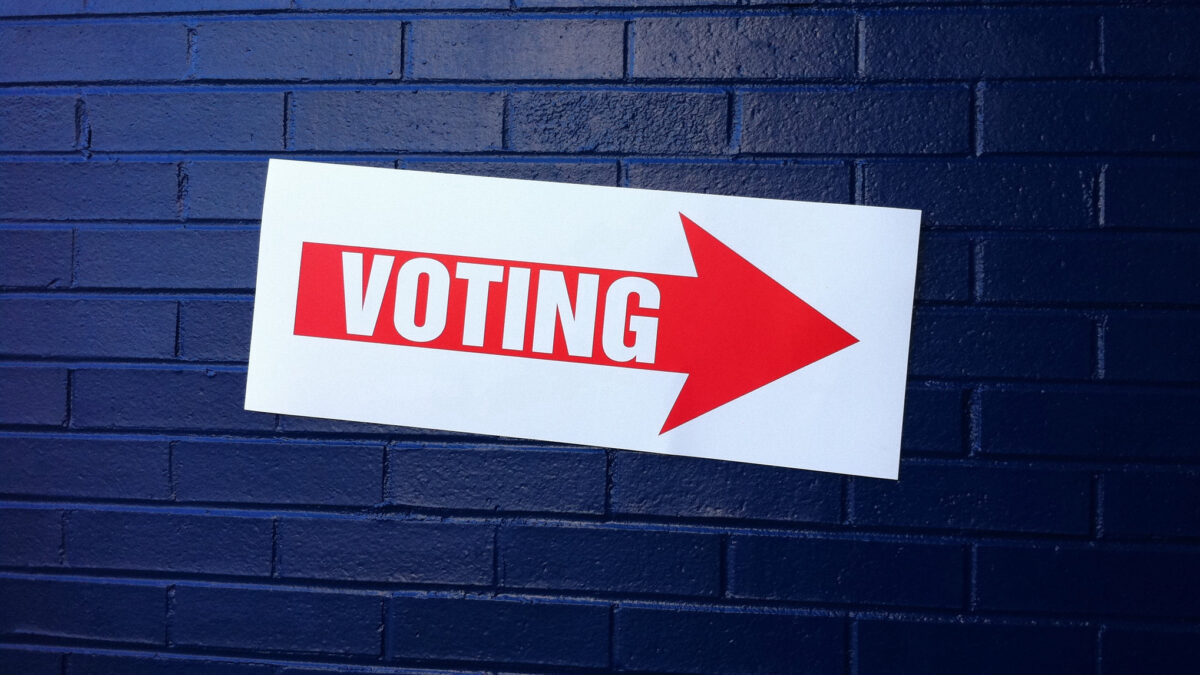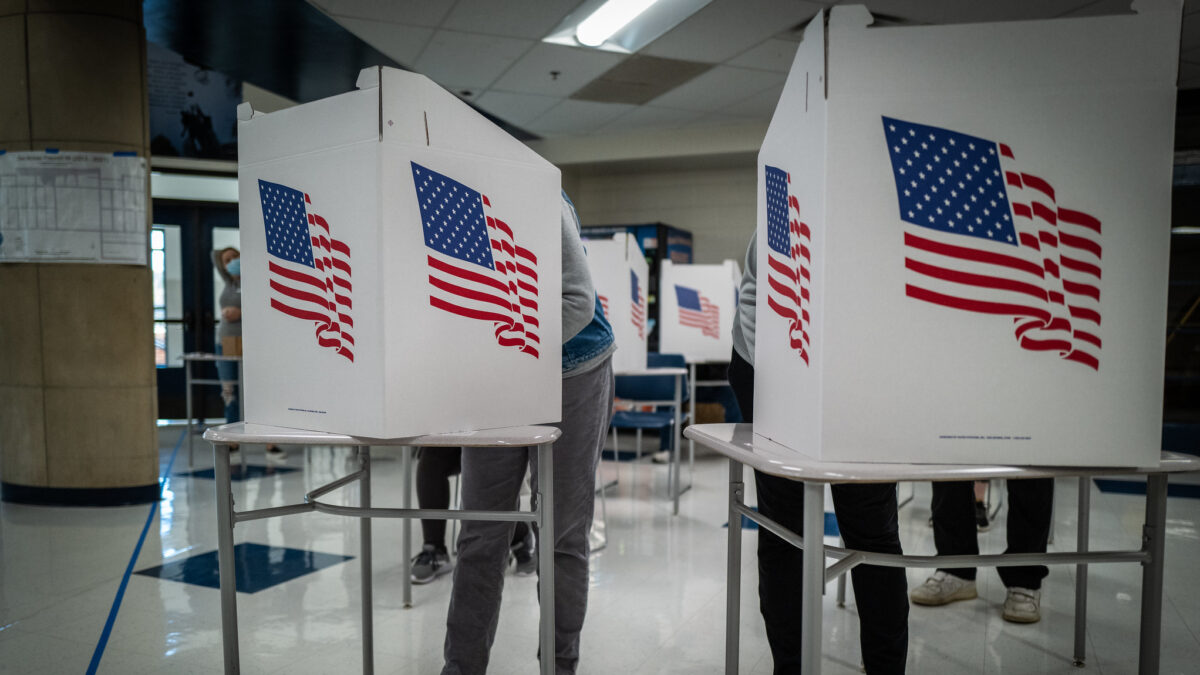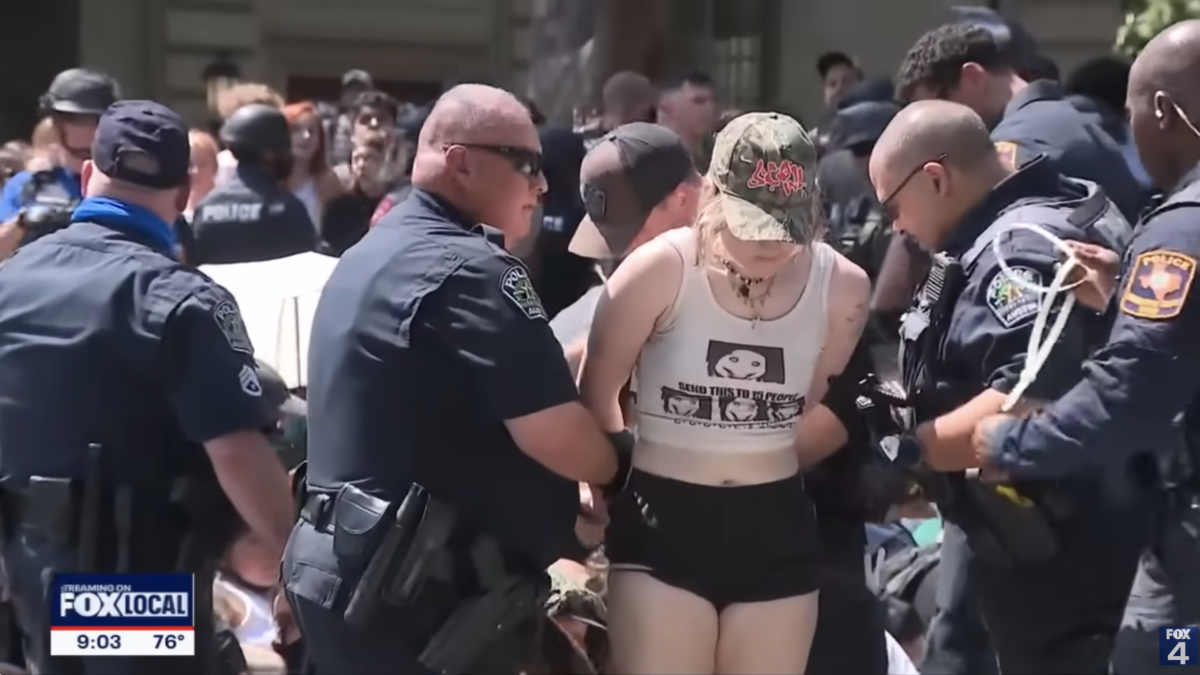
President Joe Biden is at risk of losing ballot access in Alabama and Ohio due to a scheduling error by the Democratic National Committee (DNC), according to the states’ leading election officials.
On Tuesday, Alabama Secretary of State Wes Allen informed the state Democrat Party and DNC that the party’s national nominating convention is scheduled to take place after the deadline by which presidential and vice presidential candidates are required to be certified by state law. According to the statute Allen cited, political parties must provide a certificate of nomination for these candidates “no later than the 82nd day preceding the day fixed for the election,” or Aug. 15, 2024.
The Democratic National Convention is currently slated to start Aug. 19.
“The certificate of nomination must be signed by the presiding officer and secretary of the convention and by the chair of the state executive committee of the political party making the nomination,” Allen wrote in a letter. “If this Office has not received a valid certificate of nomination from the Democratic Party following its convention by the statutory deadline, I will be unable to certify the names of the Democratic Party’s candidates for President and Vice President for ballot preparation for the 2024 general election.”
Allen sent his letter days after legal counsel for Ohio Secretary of State Frank LaRose issued a similar communique notifying Ohio Democrat Party Chair Liz Walters that the Democratic National Convention’s current date is more than a week after the date by which presidential candidates must be certified in Ohio. This year, that date is Aug. 7, according to ABC News.
“I am left to conclude that the Democratic National Committee must either move up its nominating convention or the Ohio General Assembly must act by May 9, 2024 (90 days prior to a new law’s effective date) to create an exception to this statutory requirement,” legal counsel Paul Disantis wrote.
A similar problem occurred in 2020, when both major political parties’ nominating conventions were scheduled to take place after Ohio’s certification deadline. In that case, the Ohio General Assembly “approved changing the cutoff to 60 days — but only for that election,” according to Dayton Daily News.
When pressed by the outlet on this year’s scheduling conflict, the Biden campaign dismissed concerns about the president possibly not making it onto Ohio’s ballot, saying: “We’re monitoring the situation in Ohio, and we’re confident that Joe Biden will be on the ballot in all 50 states.”
The possibility of Democrat incompetence — or their hubris in assuming states would accommodate their convention schedule — costing Biden ballot access is ironic, given the left’s authoritarian attempts to remove former President Donald Trump from 2024 ballots.
In December, the Democrat-controlled Colorado Supreme Court ruled that Trump could not appear on the state’s 2024 ballot, claiming the former president engaged in an “insurrection” because of the speech he gave in Washington D.C. on Jan. 6, 2021. The court’s majority rationalized its decision by employing a twisted legal theory regarding Section 3 of the 14th Amendment, which deals with the “treatment of former state and federal officials, and their allies, who had taken sides with the Confederacy” during the Civil War.
It wasn’t long after the Colorado ruling that Maine Secretary of State Shenna Bellows, a Democrat, issued an arbitrary decision barring Trump from the Pine Tree State’s presidential primary ballot. An Illinois judge — whose judicial specialty is addressing traffic violations — also ruled in February that Trump could not appear on the state’s 2024 primary ballot.
The U.S. Supreme Court nullified those decisions in a 9-0 ruling last month, arguing the U.S. Constitution “makes Congress, rather than the States, responsible for enforcing Section 3 against federal officeholders and candidates.”
“States have no power under the Constitution to enforce Section 3 with respect to federal offices, especially the Presidency,” the court ruled.









